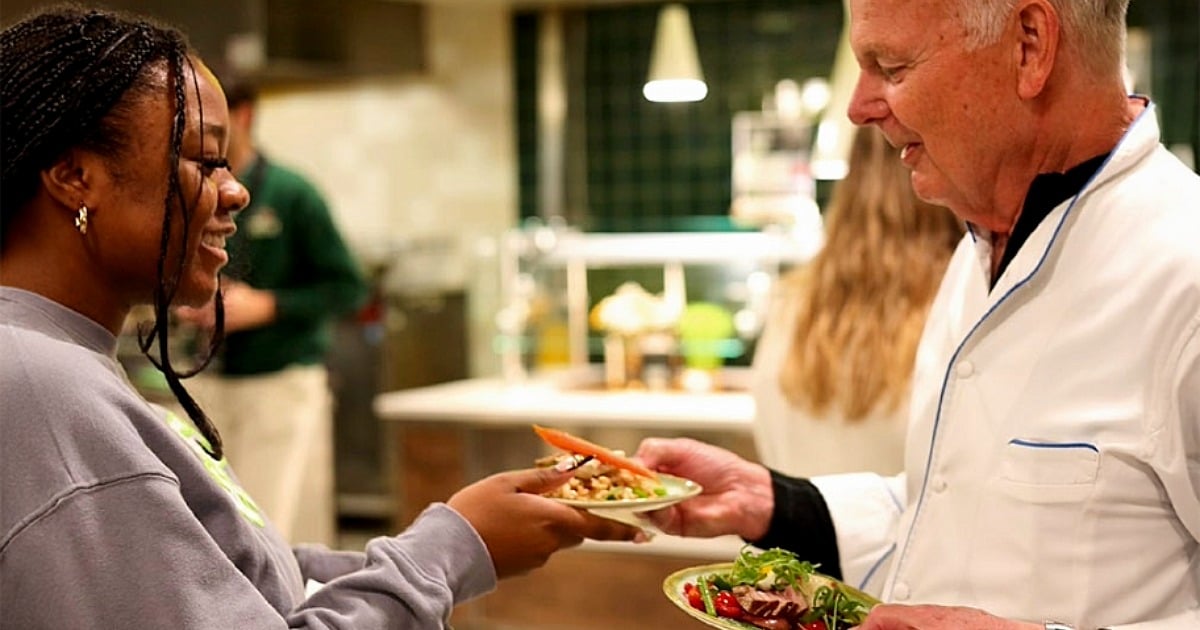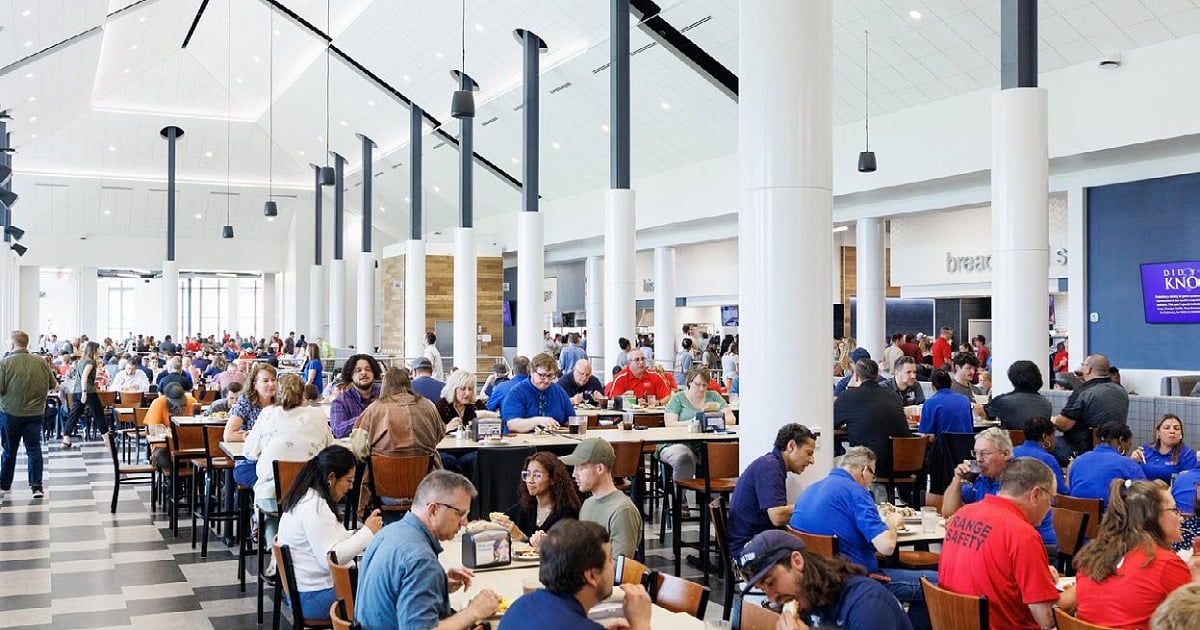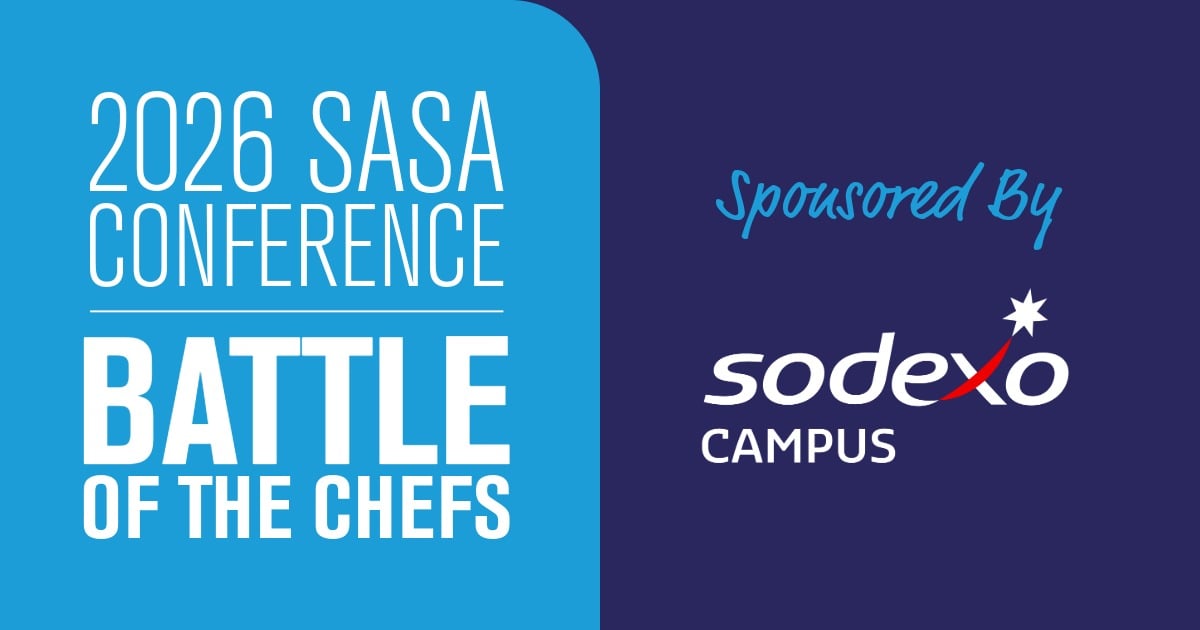Campus
Award-Winning Chefs Bring James Beard–Inspired Dining to Campus


 In the summer of 2026, the FIFA World Cup will take over North America. Stadiums and host cities from Seattle to Miami will swell with international visitors, broadcast crews, volunteers, and contractors. Hotels will be booked solid. Downtown convention centers will be blocked off for tournament operations. Restaurants will be packed wall-to-wall.
In the summer of 2026, the FIFA World Cup will take over North America. Stadiums and host cities from Seattle to Miami will swell with international visitors, broadcast crews, volunteers, and contractors. Hotels will be booked solid. Downtown convention centers will be blocked off for tournament operations. Restaurants will be packed wall-to-wall.
The spotlight will be on the pitch, but the ripple effects will touch every corner of the surrounding regions. And for those of us in higher education, it raises an important question: Where will everyone else go?
That’s where America’s colleges and universities step in. Campuses within a 150-mile radius of the 16 U.S. host cities hold a once-in-a-generation opportunity. Not to house the players or VIPs — those slots are already taken — but to provide the backbone of support for the thousands of people who make the World Cup possible.
Universities are uniquely equipped to answer that call. Dormitories have been transformed into cost-effective and comfortable accommodations, many of which feature private bathrooms and kitchenettes comparable to extended-stay hotels. Dining halls are meal plan engines. Parking lots can stage fleets of buses. Student centers can be converted to logistics command posts. During an event where every hotel bed is precious and every single unit of lodging inventory counts, the physical footprint of a campus is a hidden advantage.
 Volunteers and Staff: The Unsung Heroes
Volunteers and Staff: The Unsung HeroesEvents like this require the host cities to recruit tens of thousands of volunteers, including ushers, translators, way-finders, and community hosts. Now consider all of the paid staff required to set up media zones, operate security gates, or run transport shuttles. All of them will need a safe place to sleep, eat, and recharge between long shifts. Shared dorms and dining cards are exactly what they need...and exactly where colleges shine.
Buses will shuttle fans from airports to stadiums, and each bus will require drivers, mechanics, and dispatchers—all of whom will need staging areas, overnight accommodations, and meals. A campus can naturally serve as a logistical basecamp, offering secure parking, comfortable residence halls, and dining halls that are open early and close late.
Hotel rates, for any event, are expected to soar. For example, during the 2025 Club World Cup, Philadelphia hotel booking spiked by 39%, Seattle by 45%, and Cincinnati by 33% (Lighthouse, 2025). Demand growth hit +74% in Philadelphia, +62% in Cincinnati, and +61% in Seattle.
Universities have an opportunity to capitalize on the incredible demand for overflow lodging and group dining while offering affordable rates.
Finally, the overlooked but powerful category: displaced groups. Every summer, major cities host their own steady rhythm of conferences, youth tournaments, religious gatherings, and cultural festivals. Boston expects well over 3 million international visitors in 2026, many of whom will be bumped by FIFA’s contracts or priced out by hotel surges. That’s a golden opportunity.
Campuses can step in as “one-off venue partners.” Associations that never would have considered a college campus before may be delighted to discover the affordability and flexibility of a campus environment. Likewise, groups that typically would not book outside of a metro area will likely be more open-minded about utilizing facilities in surrounding regions and beyond. And keep in mind, once they’ve had a positive experience at your campus venue, there’s potential for them to return long after the World Cup leaves town.
The opportunity is not abstract — it’s urgent. Large-scale event planning starts months in advance, so campus operators who start now can establish themselves as part of the solution.
This is the accredited One-Stop Shop (ACCED-I) model at its best: take the complexity out of the guest’s hands and deliver a campus-wide solution under one roof and one contract. STR, the global leader in hospitality benchmarking, forecasts that U.S. host cities could see average daily rate premiums of 5-25% during 2026 (Hotel News Resource, 2025).
Meanwhile, luxury hospitality packages are already selling for up to $73,200 per person (Sports Business Journal, 2025). The value of a campus one-stop-shop could not be more clear. Bundle your services for customer ease and sales agents, too!
 1-2-3 Steps to Start
1-2-3 Steps to Start*Remember to translate your marketing materials into several languages so you can target the multicultural audiences who support the FIFA event.
Luxury packages for the 2026 FIFA World Cup are selling for up to $73,200 per person.
Large-scale events — like the World Cup and 2028 Los Angeles Olympic Games — aren’t just sports tournaments. They bring a tidal wave of people, logistics, and demand. Universities have the space, the services, and the spirit to catch that wave. The question is not whether there’s opportunity — it’s whether campuses will move quickly enough to claim it.
In 2026, when the world’s eyes are fixed on the pitch, your pitch is easy:
The campuses that prepare early for once-in-a-lifetime events will find themselves celebrating a different kind of victory, proving that higher education institutions can be indispensable players in some of the biggest shows on Earth.
For assistance in packaging, promoting, and taking advantage of the unique, invaluable resources that your campus has to offer, connect with a Sodexo Campus Conference Services specialist today.
APPENDIX: Sources & Citations
Meet Boston (2024). FIFA World Cup 26 will supercharge Boston’s tourism industry.
https://bostonfwc26.com/newsroom/fifa-world-cup-26-will-supercharge-bostons-tourism-industry/
Sports Business Journal (2025). On Location launches first wave of 2026 World Cup hospitality sales.
https://onlocationexp.com/news/fifa-hospitality-packages
Lighthouse (2025). USA soccer tourism surge: How the 2025 Club World Cup is setting the stage.
https://www.mylighthouse.com/resources/blog/usa-soccer-tourism-2026-world-cup
Hotel Dive (2025). FIFA Club World Cup hotel bookings surge unevenly across U.S. cities.
https://www.hoteldive.com/news/fifa-club-world-cup-hotel-bookings/751285/
Hotel News Resource (2025). U.S. Hotel Industry Braces for Impact from FIFA Club World Cup (STR).
https://www.hotelnewsresource.com/article136899.html
Nikzad, Nisar. “The Importance of Language to the FIFA World Cup.” Translation Excellence, August 7, 2023.
https://translationexcellence.com/importance-language-fifa-world-cup/
“One-Stop Shop Certification.” Association of Collegiate Conference and Events Directors-International (ACCED-I). Accessed September 3, 2025. https://www.acced-i.org/oss-certification.html
Award-Winning Chefs Bring James Beard–Inspired Dining to Campus

SUNY Oneonta’s Innovative Internship Programs and Community Collaboration Improve the Perception of Higher Education

Innovations in Student-Centered Dining to Support a Growing Campus

Celebrating the Best of SUNY Collaboration & Culinary Creativity
